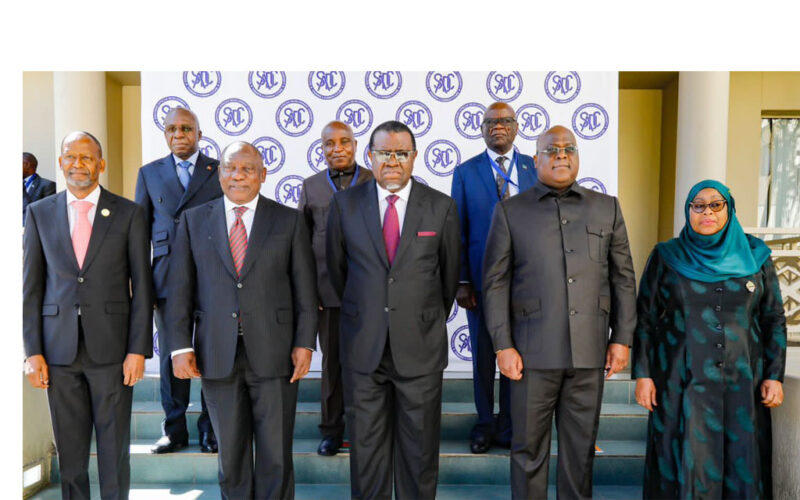Martin Endjala
Despite acknowledging the progress made over the past year in silencing guns in some member states of the Southern Africa Development Community (SADC), President Hage Geingob has called on his counterparts to do more to realise Africa Agenda 2063 under the theme “The Africa We Want”.
Geingob was speaking at the 43 SADC Ordinary Organ Troika Summit on Wednesday in Luanda, Angola as the outgoing Chairperson of the SADC Organ on Politics, Defence and Security Cooperation.
He said the last meeting in July this year, was necessitated by the need for the Organ to deliberate and make decisions on the prevailing security situation in some of the SADC member states that are affected by the insecurity due to the presence of armed and terrorist groups, notably in the Democratic Republic of Congo and the Republic of Mozambique.
Geingob said there is a need for increased commitment by the SADC Organ, to promote and strengthen peace and security in the region.
Adding that the SADC Secretariat was tasked to initiate the process of convening a Tripartite Summit among the regional stakeholders involved in supporting peace efforts in Eastern DRC and it was done with the coordination of the African Union, and Quadripartite Summit underscored the need for strengthened harmonisation and coordination between existing peace interventions within bilateral and multilateral arrangements in the Eastern DRC.
“I always say that one does not make peace with your friends, one makes peace with your enemies. Without peace, there is no development and without development there is no peace. We should continue to hold hands in the firm belief that security and peace are necessary preconditions and key enablers of regional integration and development,” he said.
While addressing the SADC Day, the Namibian Head of State said that the work of developing the region as part of the second phase for the economic liberation and for the prosperity of all citizens is difficult but resolutely ongoing.
Therefore, there is a need to continue to fight poverty and inequality and to address the challenges of climate change, pandemics, transnational crime and environmental degradation.
Adding that as a country, Namibia will continue to play her part in regional integration by enabling trade and commerce for her landlocked neighbours through the use of our harbours which will ensure that they are sea-linked in order to facilitate economic development in the region.
“Namibia is committed to the free movement of people in the region and with the recent introduction of the use of national ID cards for travel between Namibia and Botswana, we are demonstrating our commitment to an integrated SADC region. We are determined to harness our abundant renewable energy potential, particularly in Green Hydrogen production, which will contribute to stable domestic and regional energy supply, and the reduction of global carbon emissions,” he said.




